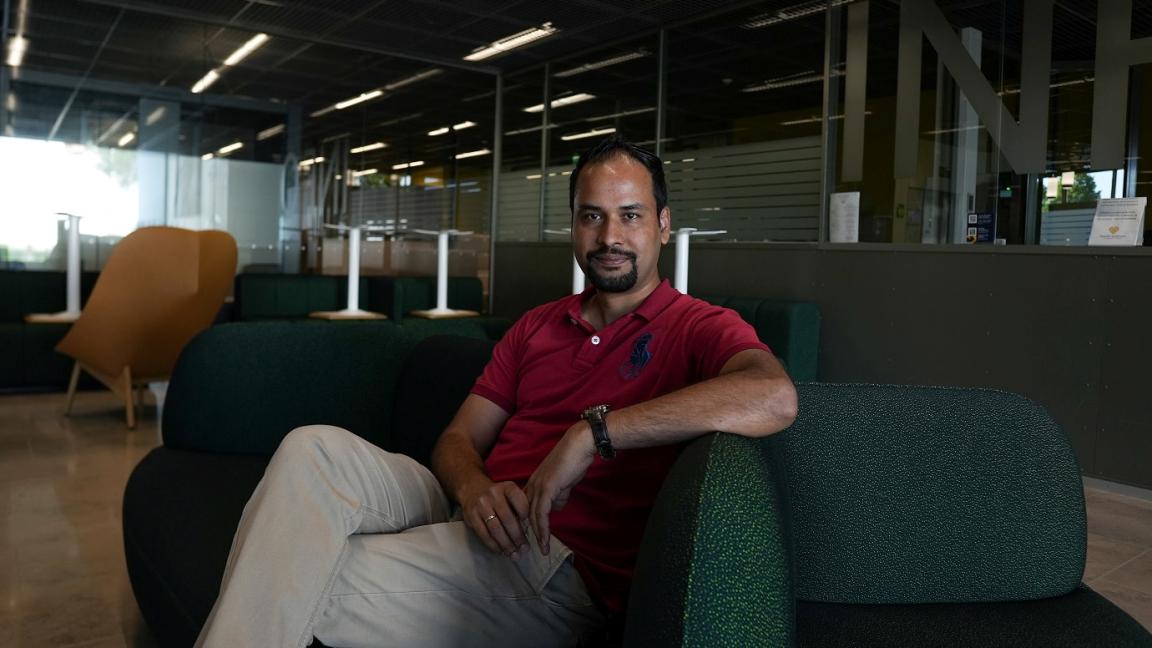Niranjan Sapkota, Assistant Professor of Finance, encourages learning Finnish: "Language is the key to integration"
Niranjan Sapkota’s journey in Finland began in 2012 with his master’s studies at the University of Oulu. At the time, with no plans for Finnish citizenship, he didn't see the necessity of learning the language. His participation in a host family program in Oulu offered a rich cultural exchange, made seamless by the family's fluency in English. However, a visit to the host family's grandparents, who spoke no English, created an undeniable language barrier. It was in that moment that Sapkota first realized the need of learning Finnish.
While navigating life in Finland is possible with English, Sapkota found that true integration happens in the smaller, everyday moments. When the department’s monthly meetings suddenly switched to Finnish and he no longer understood what was being discussed, or those moments at the grocery store checkout when he didn’t understand what the cashier was saying, made him feel like an outsider, Sapkota recalled. He believes understanding the language is not just about survival but about achieving a deeper cultural belonging. A seminar he participated in proved to be a significant turning point.
At the event, Sapkota was the only individual presenting in English.
– Even though my presentation was in English, I could have and should have at least introduced myself in Finnish. I regret not doing so, because I believe it would have made a significant difference in building a connection with the audience – showing them that I’m trying and learning. But I was too afraid they would judge me if I said something wrong, Sapkota says.
That experience fueled his motivation. Sapkota has since completed the "Finnish for Staff 1A and 1B" courses at the University of Vaasa. While he has used tools like Duolingo, he feels the best way to learn is through practice.
– Even if your sentences aren’t perfect or you remember some words incorrectly, it’s still better to try and make mistakes. It might feel nerve-wracking, but you learn from mistakes. People don’t judge – they’re more likely to encourage and gladly help, Sapkota encourages.
His language learning continues at home, where his children have become his best teachers.
– Children are honest and point out mistakes directly, but they don’t judge. I also learn new words from them every day. They’re amazing teachers!
The family speaks a mix of Finnish, English, and Nepali.
– It’s important for us to teach our children their mother tongue, Nepali, but in Finnish society, they learn Finnish. It’s wonderful that children learn quickly, but at the same time, I feel sad when I don’t always understand them. That’s a major source of motivation. And to be honest, it hurts deeply when you struggle to understand your own kids.
Looking ahead, Sapkota's next goal is to deliver a presentation entirely in Finnish. His primary message to other newcomers is one of encouragement. He emphasizes that the uncertainty in the job market is a universal concern, regardless of location. Even if you are unsure about the length of your stay, learning the local language can open doors you never knew existed. There is no harm in learning a new language, but there are many disadvantages to not understanding the language of the community you live in. Without it, your neighbors may remain strangers, your colleagues may not become your friends, your children's school announcements might go unread, and you miss out on the shared jokes and casual conversations that build a true sense of belonging.
– Even if you don’t know how long you’ll stay in Finland, it’s still good to know at least the basics and everyday vocabulary. It helps with integrating into Finnish society and culture. Be brave and don’t fear mistakes – people will encourage you when you try!
